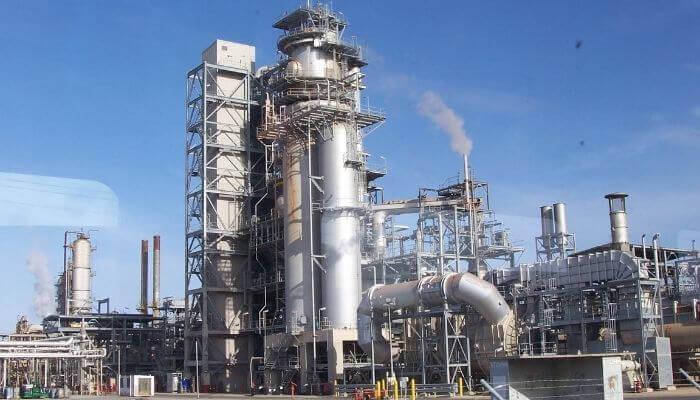As Dangote’s refinery prepares to start operations later in the year after commissioning on May 22, the risks of living near an oil refinery become more important.
Real estate companies have long based their advertisements to lure people to buy land in forested areas of the Lekki axis near the Dangote refinery. It was supposed to be a milestone that would give the green light to development in those areas that are behind the refinery.
While Dangote’s refinery went through strict environmental approvals from the Ministry of Environment, according to its chairman, Aliko Dangote, at an industry event last week. “To make the land suitable because of climate change, we need to raise the land 1.5 meters,” he said, adding that the area is seven times the size of Victoria Island.
These promoters did not go through this rigor.
Oil refineries emit various pollutants into the air and water, including carbon monoxide, sulfur dioxide, nitrogen oxides and particulate matter. These pollutants can have negative effects on the health of people living near the refinery, especially those with respiratory problems. Pollutants can also have environmental impacts, such as acid rain, soil contamination, and water pollution.
In addition to health and environmental concerns, there is also the risk of accidents at oil refineries, such as explosions or fires. Accidents can have catastrophic consequences, including injury or death, property damage, and long-term health effects.
In 2005, an explosion occurred when a cloud of natural gas and oil vapor ignited and violently exploded at the isomerization process unit of the BP Texas City refinery in Texas City, Texas, killing 15 workers and injuring 180 more An accident investigation report blamed a running vehicle engine.
Given these potential risks, some experts argue that it is not appropriate to locate residential buildings near oil refineries.
Energy sector expert and co-founder/CEO of Dairy Hills, Kelvin Emmanuel, said the potential of the Dangote refinery to end decades of government providing insufficient recovery for petrol subsidy in Nigeria it must not obscure the environmental risk and indifference of regulators will cause human safety and the environment, mainly around the Lekki axis.
The health effects of living near a refinery can be chronic and gradual. According to a warning published by the government of California in the United States, some adverse health effects of living near a refinery include an increased risk of asthma, cancers, birth defects, neurological damage, cardiovascular damage, difficulty breathing and blood disorders. Also, those who live closer to oil refineries are statistically more at risk of developing these health disorders, even if they are 10 miles away.
Since the construction of the Dangote Refinery in 2016, several developments have taken place along the Ibeju Lekki axis where it is located, ranging from real estate developments to the expansion of the road network leading to the refinery, among others.
However, other factors such as land availability and the need for affordable housing in certain areas have spurred several billionaire real estate projects along the Lekki axis.
Real estate companies, including Harmony Gardens and Estate Development Limited, as well as the Lagos State government, have invested millions in land properties around Dangote’s refinery.
The Lagos State Government is building the Lekki International Airport, which will have a capacity of up to 5 million passengers a year. 3,500 hectares of land has been allocated for the airport, and the master plan is already underway.
In addition, the government plans to build the 38-kilometer-long fourth mainland bridge, which would connect Lagos Island to the cities of Ibeju Lekki and Baiyeku, as well as across the Lagos Lagoon to Ikorodu.
According to the state government, this bridge will help the area’s road system by complementing the third mainland bridge, strengthening the state’s economy while promoting investment. The Lekki Deep Seaport and Lakowe Lakes Golf & Country Estate and various shopping and recreational centers would further drive people to the Lekki corridor.
Emmanuel said the Lagos State government should be proactive in coming up with and enforcing regulations that would ensure that the octane level of refined fuel is above 90 percent and below 15 percent sulfur parts per million (ppm), which is in line with global benchmarks.
“This is essential to improve the fuel-to-air combustion of engines, which is essential to reduce pressure peaks in engines and ensure that carbon control of emissions is not only guaranteed, but the lifetime of the engines that use fuel in Nigeria be improved,” he said.
To protect residents around the refinery, he called on the Lagos State Environmental Protection Agency (LASEPA) to collaborate with the National Agency for the Enforcement of Environmental Rules and Regulations to ensure that effluents from Wastewater discharged from the refinery is properly treated for detoxification before being discharged.
Also Read: Buhari to inaugurate 650,000 bpd Dangote refinery on May 22
“LASEPA must ensure that in line with globally accepted environmental standards, residential real estate developers in Lagos cannot sell properties within a 48km radius of the refinery due to gases such as nitrogen oxide, l “sulphur oxide, carbon monoxide, which can cause respiratory tract infection, bronchitis, pneumonia, nausea,” he said.
To mitigate these environmental effects, refineries can adopt a number of measures such as using cleaner technologies, reducing energy and water consumption, and implementing appropriate waste management practices. The government can also impose regulations and standards to limit the environmental impact of refineries.
Dangote Industries Limited has said the 650,000 barrels per day refinery had been designed to process a variety of light and medium grades of crude and produce extremely clean fuels that would meet the Euro V specification, which is less than 10 ppm of sulphur.



